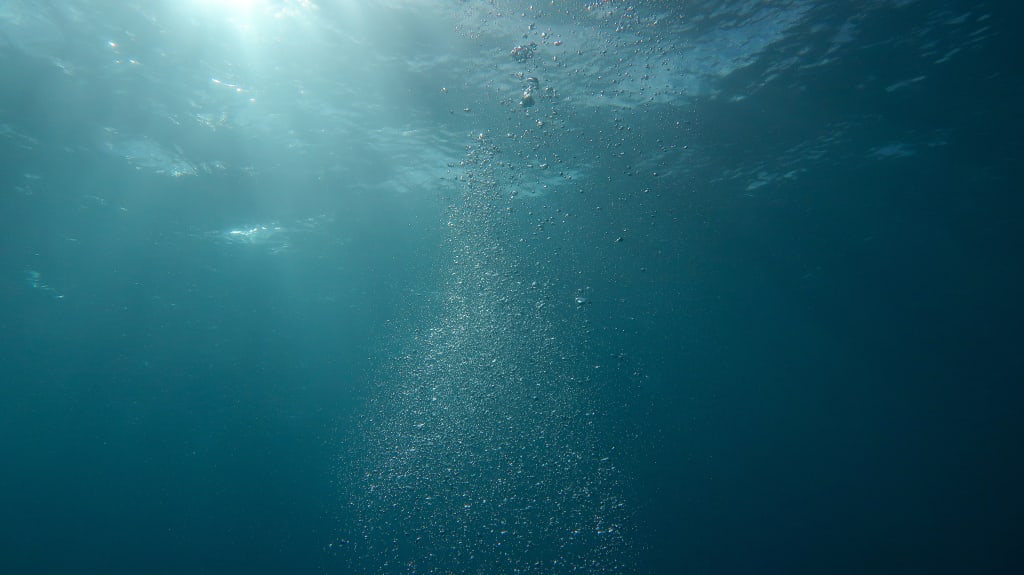Exploring the Depths
Unveiling the Wonders of Deep Sea Exploration and Marine Conservation

Beneath the shimmering surface of our vast oceans lies a mysterious realm waiting to be discovered. The depths of the sea, with their enigmatic creatures and hidden treasures, have captivated human imagination for centuries. In this article, we embark on an exhilarating journey to explore the wonders of deep-sea exploration and shed light on the pressing need for marine conservation. Join us as we dive into the depths, uncovering the secrets of the ocean and understanding the importance of preserving its fragile ecosystems.
The abyssal zone, the deepest part of the ocean, remains largely unexplored, akin to an alien world. Its extreme conditions, including crushing pressures and frigid temperatures, present formidable challenges to researchers. However, with advancements in technology and the indomitable spirit of exploration, humans have begun to unravel its mysteries. Sophisticated deep-sea submersibles, equipped with state-of-the-art cameras and sensors, enable scientists to descend into the abyss, capturing mesmerizing images and collecting invaluable data.
As these submersibles plunge into the unknown, a dazzling array of life forms emerges from the depths. Bioluminescent creatures, adorned with vibrant colors and intricate patterns, navigate the darkness with captivating beauty. Delicate coral reefs, often referred to as the rainforests of the sea, create vibrant underwater ecosystems that harbor an astonishing diversity of species. From the majestic blue whale, the largest animal to have ever existed, to the elusive giant squid, the deep sea holds awe-inspiring wonders that continue to amaze scientists and nature enthusiasts alike.
Yet, despite the allure of the deep sea, it faces a multitude of threats. Overfishing, habitat destruction, pollution, and climate change jeopardize the delicate balance of marine ecosystems. The exploitation of deep-sea resources, such as minerals and hydrocarbons, poses additional risks to these fragile environments. The consequences of human activities extend far beyond the depths, impacting not only marine life but also the livelihoods of coastal communities and the overall health of our planet. Urgent action is needed to safeguard the oceans and ensure their sustainability for future generations.
Marine conservation efforts play a crucial role in protecting the wonders of the deep sea. Establishing marine protected areas (MPAs) is a key strategy employed to safeguard vulnerable ecosystems and promote biodiversity. These protected zones serve as sanctuaries, allowing marine species to thrive and habitats to regenerate. Moreover, sustainable fishing practices, such as implementing catch limits and gear modifications, help to prevent overexploitation and promote the long-term health of fish stocks. Collaborative initiatives between governments, NGOs, and local communities are essential for effective marine conservation, as they foster knowledge sharing, enforcement of regulations, and community engagement.
In addition to protective measures, scientific research and education are instrumental in understanding and addressing the challenges facing the deep sea. Ongoing studies shed light on the ecological processes and interdependencies within these ecosystems, providing valuable insights for conservation strategies. The dissemination of knowledge through educational programs and public awareness campaigns fosters a sense of stewardship and empowers individuals to make informed choices that positively impact the oceans.
Moreover, emerging technologies are revolutionizing our ability to explore and study the deep sea. Remotely Operated Vehicles (ROVs) and Autonomous Underwater Vehicles (AUVs) equipped with advanced imaging and sampling capabilities enable scientists to investigate the depths with greater precision and efficiency. These cutting-edge tools allow for the exploration of previously inaccessible areas, enabling researchers to uncover new species, understand deep-sea geological processes, and monitor the impact of human activities.
The wonders of the deep sea are not limited to their intrinsic beauty and biodiversity. They also hold immense potential for scientific discoveries and technological innovations. Organisms thriving in extreme conditions may possess unique biochemical properties that could lead to the development of novel drugs and therapies. Deep-sea minerals, such as manganese nodules and hydrothermal vents, hold promise as alternative sources of rare earth elements and renewable energy. Exploring these resources responsibly and sustainably is key to harnessing their benefits without causing irreparable harm to the delicate balance of the deep-sea ecosystems.
In conclusion, the exploration of the deep sea unveils a world of astonishing beauty and complexity. It ignites our sense of wonder and offers a humbling reminder of the interconnectedness of all life on Earth. However, the future of the deep sea hinges upon our commitment to marine conservation. By protecting these fragile ecosystems, implementing sustainable practices, and fostering scientific research and education, we can ensure that the wonders of the deep sea continue to inspire and enrich our lives for generations to come. Let us embrace our role as custodians of the ocean and embark on a journey towards a sustainable and thriving future for our planet and all its inhabitants.





Comments
Maaff Mktg is not accepting comments at the moment
Want to show your support? Send them a one-off tip.